I’ve been trepidatious about writing about the second series of Mushishi. Not because I don’t have anything to say, but because when I write a review of an anime series it puts a mental full stop on it. And of all the series that I’ve watched, Mushishi is the last one I want to do that to.
It’s difficult to overstate exactly how important the first, and now this second, series is to me. It’s the series that I turn off my phone for. Turn down the lights, turn up the volume until my skin tingles with anticipation and the drawl of Ally Kerr, and now Lucy Rose fills my ears. I clutch pillows close when I watch it and dare not move until each episode is finished, letting out a contented sigh as it does. It’s the series I reach for when under the weather, that I put on during bouts of insomnia, and memories of it often come drifting back to me when I least expect it. I can name nearly every episode from the first series and tell you offhand which ones my favourites are. The story of Ginko, the mushi and everyone in between is a story that I don’t want to end, despite knowing that the upcoming movie marks the end of the manga source material.
It still boggles my mind that a second series has even been made, the first was so perfectly self contained and from such an unlikely studio, it would be foolhardy to think that a second series would be made and even approach how good the first was. It all started with the special though back in January 2014. Forty five more minutes of Mushishi? Yes please, no arguments here. And as that montage of characters from the first series flashed by, a great swell of memories washed over me. Then, like a kid being giving a candy bar and finding out they now own the whole damn sweet shop, the announcement card at the end claiming a new series was on that way was flabbergasting.
If you want the short version then: if you liked the first series of Mushishi, you’ll like this one. Nothing has fundamentally changed since I named it my number 2 series of the last decade: it is still a collection of self contained tales of humanity’s interactions with the mushi - strange and ephemeral creatures that lie close to the heart of nature - and its still achingly beautiful.
More so than Ginko with his iconic white hair and moss-green eye, rural Japan is the star of the series. The detail lavished on the innumerable backgrounds is astounding, whether snowy valleys, pink cherry blossoms or riverside villages, Mushishi is a love letter to the verdant natural Japan that can be so often forgotten in the pandemonium of its modern cities. It’s like the Shinto religion - all land spirits and naturalism - given form outside of shrines and temples.
We see this world via Ginko though and he maintains a kind of world weary sense of wonder as he travels the countryside trying to help people who have come into contact with the mushi. Sometimes that contact is inadvertent, people going about their daily lives and by chance they have become afflicted, from sore knees to repeating their lives over and over again. Othertimes though, people have found a way to use the mushi to their advantage whether summoning wind or hunting animals. Regardless, Ginko offers a solution but never forces it upon them - here is the medicine, do with it what you will.
The structure may be familiar but the stories twist and turn in curious ways, often concluding generations from the “present” or with the devastating realisation that however much Ginko wished to help, the outcome was not a good one. After all, he only offers the truth, yet time and again he is seen as an interloper, robbing the person, family or village of the good thing they have going; but meddling with the unknown, the unknowable, rarely ends well when the hubris, obstinance or folly of people is involved.
This is after all about people, their lives and their foibles. The deftness with which their stories are told can at times be startling, vignettes judiciously meted out until, inevitably, Ginko appears and explains whatever strange occurrences may have befallen them. It is rare that he isn’t able to put a name to symptoms but his presence in a story is never guaranteed, sometimes arriving only minutes from the end of the episode while others occupying the majority of it.
The exceptions to this is when we find out more about Ginko himself or we peer into the world of the mushishi in general. Like the first series, both of these types of episode are rare and are all the more special for it. When it comes to the former though, it is apparent that despite being part of an ever-changing world, he is a fixed point. People change around him while he acts as a catalyst with all of his development retroactive, filling in the gaps on how he became the vagabond mushishi we know. The latter sees the return of past-series favourite Tanyuu, expanding upon her story of the cataclysmic mushi that was sealed away in her ancestor’s body. Her relationship with Ginko is one of the most fascinating of the show, yet like the mushi themselves, it’s all the better for its ephemerality.
What has changed since the first series then has more to do with the tone of the stories than with the shift to high definition. Not every episode is like the previous series’ Raindrops and Rainbows: here a handful of tales aren’t afraid to slowly dial up the horror; be that children hollowed out by darkness or glassy eyed things lurking in the shadows, murderers or indifferent mothers. These episodes are reminders that dark and powerful mushi live beyond the sight of normal people in hidden caves and lost times. There is softness and beauty just as there is fear and gloom, every story in this second series exhibits gradations of that and though Ginko may be flippant at times, the series itself never loses the respect for its namesake.
That the quality of each episode never dips does defy belief, and with so many, natural groupings start to form (oh someone’s messing with mushi they don’t understand again!) just as favourites soon arise. Maybe you’re like me and look forward to the muted quiet of deep winter, or perhaps you’re driven by those stories of the mushishi - meeting to trade wares or waging private wars against the mushi. Whereas before, episodes like Pickers of Empty Cocoons or Sea of Writings stood out, this series has a handful of exceptional, landmark episodes, distinct from the others by their lack of gravel voiced narration and opening song, stealing those otherwise lost minutes and putting them to better use. Telling then because they’re not specifically about the mushi, the mushishi or Ginko and stand out because, like any good story, they linger long after their shocking conclusions.
The power of this series, and with Mushishi as a whole, is in how simple it is. There is no hidden agenda, no moral high-horse, no historical events to latch on to, just people. Family and sake brewing, death and farming, community and children, the elderly and the infirmed. Everything you need to know is up on the screen or coming out of your speakers and five, ten, even twenty years down the line the stories will still be as touching and heart wrenching and life affirming as they are now.
That’s an enormous amount of credit to Yuki Urushibara’s award winning manga, but is in no way meant to undersell Hiroshi Nagahama’s unnervingly confident direction or Toshio Masuda’s magnificent score. Each shot is so perfectly measured, you can tell in an instant when the baton of one character has been passed to another, long before the dialogue confirms it. So too with the music that was previously characterised by its use of one-of-a-kind and long forgotten instruments, the soundtrack here feels like a seamless extension of the first series’, despite the eight year gap between productions.
It’s difficult for me to speak about Mushishi without degenerating into superlatives. It’s one of the few shows that is able to break whatever aloof objectivity I may attempt to hold on to and shoot straight past any measured response I may have about it. It’s a show that I want to push into your hands, and with a knowing smile tell you to watch it, knowing that if I try and communicate to you just how good it is, it may negatively colour your thoughts. Whomever was responsible for the planning and execution of this second series understood that nothing needed to change from the first, so they just gave us more. More Ginko, more mushi, more people, more stories.
There is nothing quite like Mushishi. It is a show that is extremely dear to me, and it’s with immeasurable relief that I can say that the second series, Zoku Shou, is as brilliant as the first. It’s a series that I wanted to write about after each episode but knew that each post would boil down to “this is amazing, watch it”. All that’s left then is for me to say, without hyperbole, that this is what I consider to be one of the greatest anime series to have ever been made.
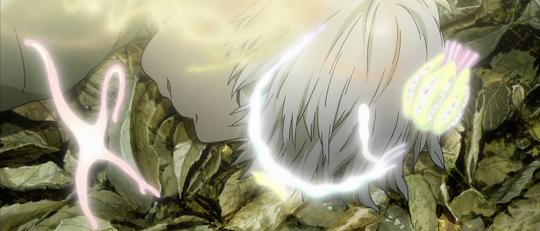
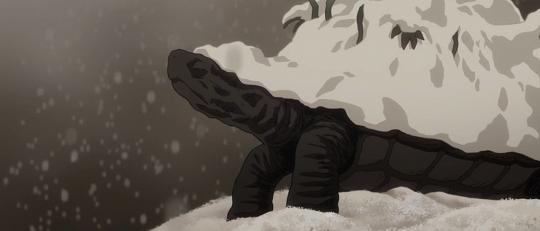
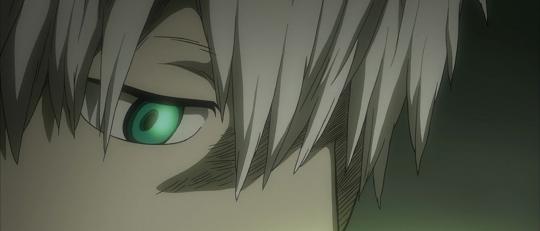
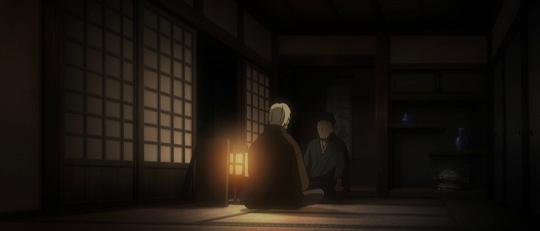
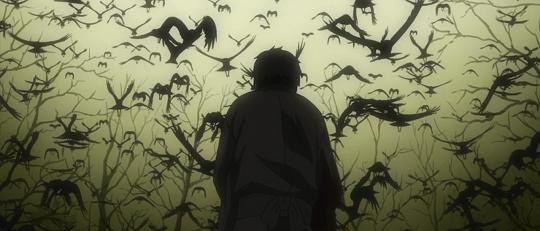
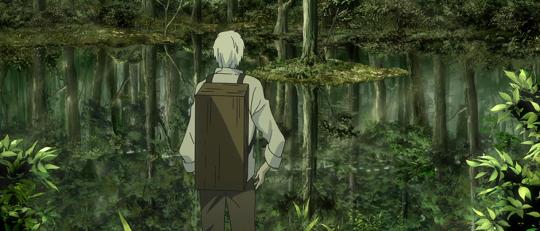
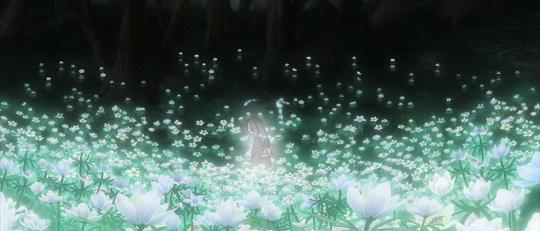
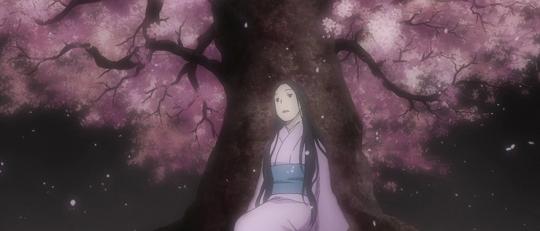
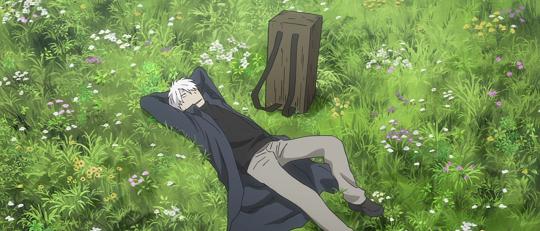
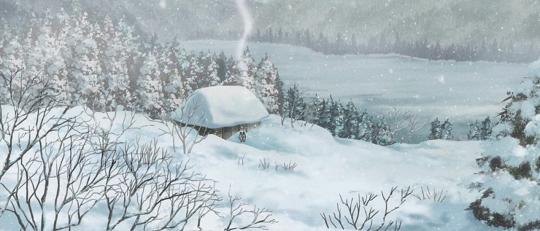
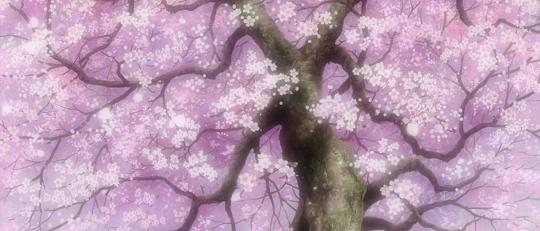
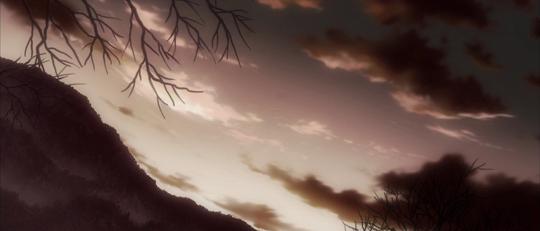
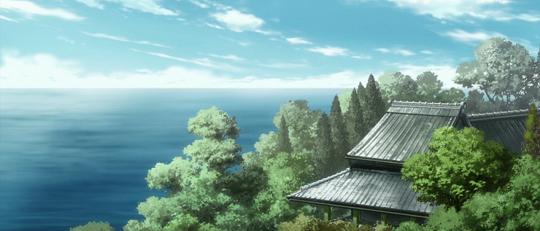
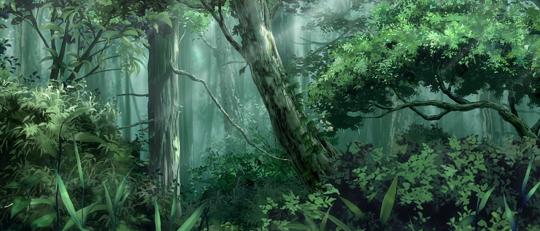
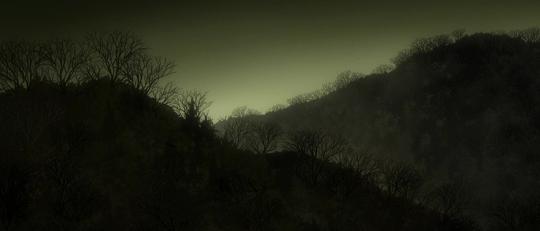
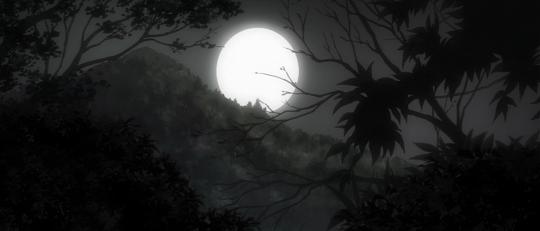
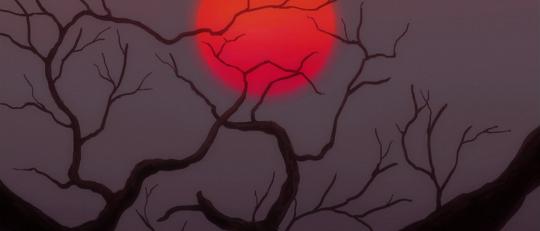
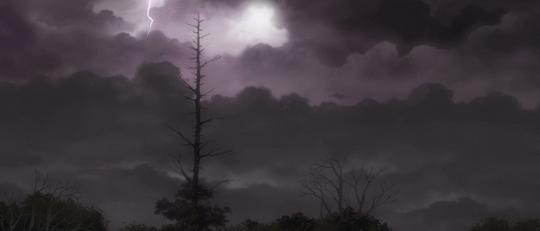

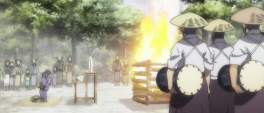

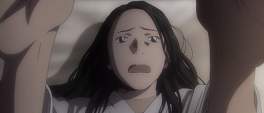
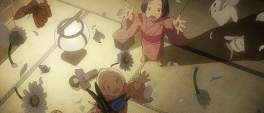
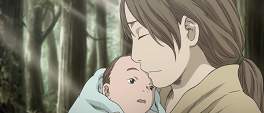
*Nods in silence.*
Whenever I put Mushishi on top a top-X-list this season, all I had to say "It's Mushishi". This is one show I never feel like talking about, as if talking empties me out and distances me from the impressions the show has left. It must be one of the most difficult shows to blog.
Oddly, I never look forward to an episode. Most of the time I even have to force myself to watch the episode. No motivation. But once the episode starts, almost immediately, I'm caught up in the show and nothing else exists. At the same time, I'll rarely watch more than one episode at once. As a result, I'm still not done with this season (four more episodes to go). Even though it's without a doubt the best thing I've seen this season. Probably this entire year (the only possible competition would be Takahata's Kaguya Hime).
I'm not sure what to make of this mismatch of motivation and enjoyment, but there it is.